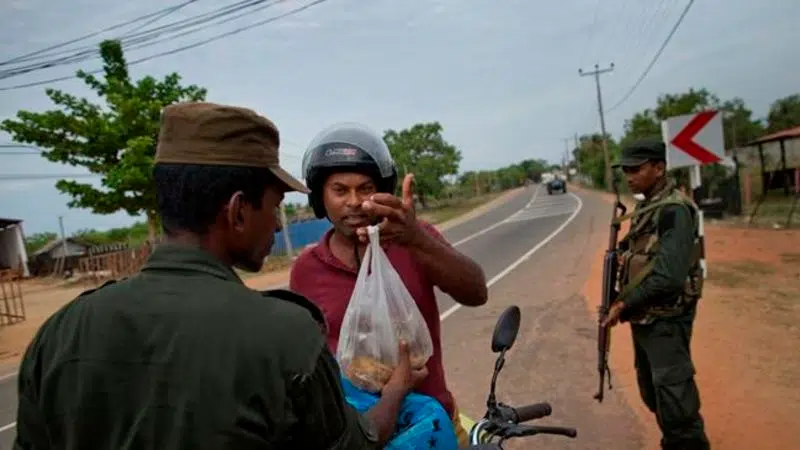
Links to Easter bombings put eastern Sri Lanka on edge
KALMUNAI, Sri Lanka — Suicide bombings at a militants’ safe house have shaken the simple homes of this east Sri Lankan town as well as the rest of this idyllic coast, as the investigation into the Islamic State-claimed Easter bombings has spread here.
Police and military checkpoints dot the coastal roads, with people emptying out of buses to present their identity papers. On streets lined with shuttered shops, police officers with assault rifles look warily at passers-by. Whispers persist about the leader of the IS-pledged militant group, which preached the promise of heaven through the killing of others both here and online.
The scale of the explosives seized following Friday night’s violence, as well as the continued warning of authorities that more militants remain on the loose, only add to the dread.


